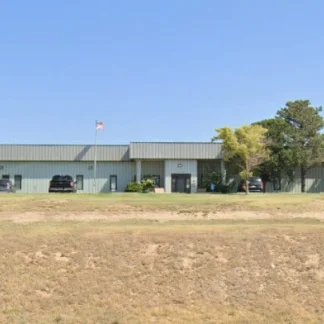Destructive Behavioral Alternatives
Destructive Behavioral Alternatives offers outpatient treatment for individuals ...
New Chance is a substance use disorder treatment center in Dodge City, Kansas. The facility offers person-centered care that aids in treating addiction and substance use disorders to help men achieve lasting sobriety.
New Chance offers a continuum of care that includes the following:
Offering an initial stepping stone, the social detox at New Chance, Inc. provides a safe, supportive environment for individuals to withdraw from substances. This program addresses and manages withdrawal symptoms through peer support.
For those requiring immersive interventions, the residential treatment program for men provides a structured setting where individuals can delve deep into their recovery journey, benefitting from intensive therapeutic sessions and 24/7 support.
New Chance’s peer support is an evidence-based practice that offers licensed peer support services to men and women. It ensures clients benefit from the insights, empathy, and encouragement of individuals who’ve walked a similar path.
New Chance promotes a comprehensive continuum of care for all clients by providing community providers to address clients’ frequently overlapping medical needs. Through partnerships and engagements, they ensure clients have access to a wide range of resources and support systems.
Contact us for more information: (620) 225-0476

Connect with New Chance by calling their admissions team directly.
(620) 225-0476 Website Get DirectionsGroup therapy is any therapeutic work that happens in a group (not one-on-one). There are a number of different group therapy modalities, including support groups, experiential therapy, psycho-education, and more. Group therapy involves treatment as well as processing interaction between group members.
In individual therapy, a patient meets one-on-one with a trained psychologist or counselor. Therapy is a pivotal part of effective substance abuse treatment, as it often covers root causes of addiction, including challenges faced by the patient in their social, family, and work/school life.
Trauma therapy addresses traumatic incidents from a client's past that are likely affecting their present-day experience. Trauma is often one of the primary triggers and potential causes of addiction, and can stem from child sexual abuse, domestic violence, having a parent with a mental illness, losing one or both parents at a young age, teenage or adult sexual assault, or any number of other factors. The purpose of trauma therapy is to allow a patient to process trauma and move through and past it, with the help of trained and compassionate mental health professionals.
In individual therapy, a patient meets one-on-one with a trained psychologist or counselor. Therapy is a pivotal part of effective substance abuse treatment, as it often covers root causes of addiction, including challenges faced by the patient in their social, family, and work/school life.
Trauma therapy addresses traumatic incidents from a client's past that are likely affecting their present-day experience. Trauma is often one of the primary triggers and potential causes of addiction, and can stem from child sexual abuse, domestic violence, having a parent with a mental illness, losing one or both parents at a young age, teenage or adult sexual assault, or any number of other factors. The purpose of trauma therapy is to allow a patient to process trauma and move through and past it, with the help of trained and compassionate mental health professionals.
Trauma therapy addresses traumatic incidents from a client's past that are likely affecting their present-day experience. Trauma is often one of the primary triggers and potential causes of addiction, and can stem from child sexual abuse, domestic violence, having a parent with a mental illness, losing one or both parents at a young age, teenage or adult sexual assault, or any number of other factors. The purpose of trauma therapy is to allow a patient to process trauma and move through and past it, with the help of trained and compassionate mental health professionals.
Destructive Behavioral Alternatives offers outpatient treatment for individuals ...
Compass Behavioral Health – Outpatient is a public rehab located in Dodge City, ...
Compass Behavioral Health is a non-profit rehab located in Dodge City, Kansas. C...
Robert J. Dole VAMC - Dodge City CBOC, part of the Robert J. Dole VAMC Health Sy...